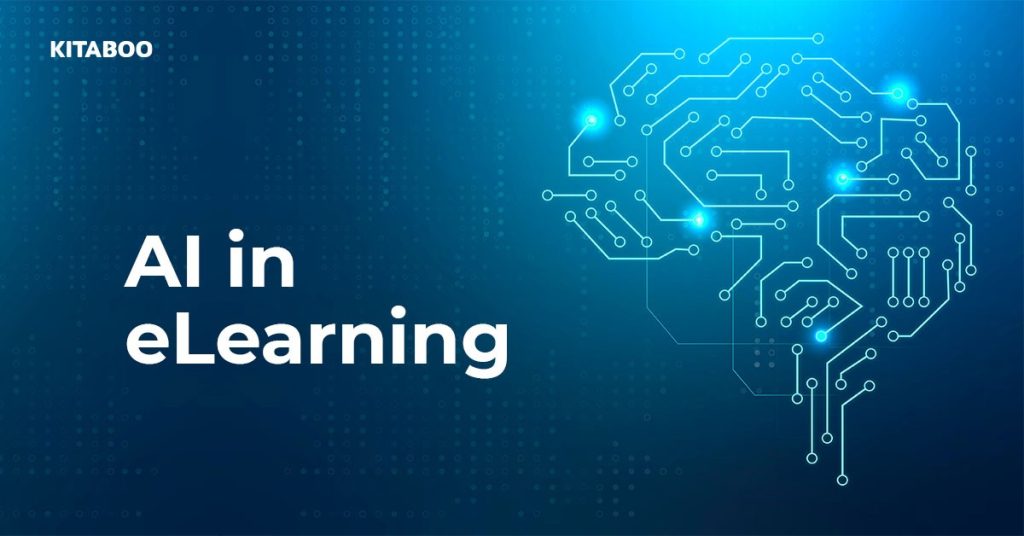
How AI Is Transforming eLearning Platforms in 2024
There is a reason why eLearning is so popular today. It not only helps educators speed up the creation of a highly engaging course but also helps students understand and retain the contents better. In fact, McGraw-Hill research has revealed that 81% of college students believe that eLearning has helped them improve their grades.
Through this blog, we attempt to shed light on how artificial intelligence has impacted eLearning platforms. We will cover both perspectives – the educators’ point of view as well as that of the learners. Here’s what’s in store for you.
Table of Contents
AI and eLearning Platforms: The Creators’ Perspective
5 Ways AI is Transforming eLearning
The Evolution of AI on eLearning Platforms
Before AI came around and revolutionized the online learning ecosystem, there were certain challenges that eLearning platforms faced with regard to adding value to the overall learning experience.
With the advent of AI solutions, these challenges have been turned into opportunities. They are helping eLearning creators deliver exemplary learning journeys.
Content Consumption Methods
As traditional eLearning would have it, the content was exhaustive. While it was necessary for each learning module to be comprehensive in its subject matter; this required long hours spent on module creation. It also made the subject-matter less interesting and learners continued to struggle to stay focused.
Using AI-based tools, content can be created much more easily, within lesser time.Long-form content can also be intelligently broken down into more consumable chunks.
From Generalized to Personalized
While online learning made it easy for people to access learning materials, it did little to adapt to their learning needs. Initially, content creators would put together a course that would be extremely linear and static, creating issues for those learners who studied at different paces.
Using AI tools, creators can now overcome these hindrances and provide their learners with adaptive courses.
Monitoring and Tracking
While traditional online courses allowed some form of assessments for learners, they were limited in their abilities.
Today, using AI tools, educators can equip their lessons with milestones and other data for better student monitoring. Educators can also access large amounts of specific data that give them insights into the learning patterns of the group and the individual.
Bridging the Generation Gap
5 Ways AI Is Transforming eLearning
With all the benefits mentioned above, it comes as no surprise that more and more eLearning platforms are using AI technology. But, AI did more than just fill a gap. Here are 5 ways in which AI is transforming eLearning.
1. Personalized and Adaptive Learning
Not all learners are the same. Some learn quickly, and others need more time; some need visual representations while others prefer learning through sound. AI technology can understand the learning style of the person engaged in the course and adapts the module according to their needs.
This results in a dynamic hyper-personalized learning experience that responds to how the learner interacts with the course. For example, AI can gauge a learner’s interest in certain topics and adjust the course direction and speed accordingly.
2. Course and Progress Analytics
One of the major ways that eLearning has improved is with the availability of learning analytics for both learners and educators. AI tools constantly monitor a student’s progress and interaction with the eLearning module and map out the analytics with parameters such as:
- The average time spent on the module
- The learners progress and
- Quiz results
This helps gauge how well a learner did on a course based on accurate numbers and not guess estimates. It also helps pinpoint areas of improvement.
3. Better Engagement
With the rise of AI-based applications like gamification and interactivity, the engagement levels provided by a course can be significantly boosted.
For example, learners can opt for a pop quiz on the topic they have just completed to see how they are performing. They also have the option to engage in group-learning games, encouraging them through their coursework.
4. Assistive Learning
For the students who require a little hand holding as they go through a course, adding assistive technologies using AI helps them progress faster.
For example, voice assistants or chatbots can be incorporated into the course material to help students quickly get answers to repetitive questions (like word meanings, definitions, and more).
Assistive learning can also incorporate technologies like text-to-speech to help differently-abled learners progress at the same pace as their peers.
5. Virtual Tutoring
Virtual tutors are becoming popular with learners as they allow for a non-intrusive way of progressing through a course while still having assistance right at hand. These AI-based tutors are proactive and can help students evaluate their progress in real time. Virtual tutors also help educators save time with students who require a high level of assistance.
Wrapping Up
eLearning has come a long way since its inception. With the catalyst of artificial intelligence, online learning courses are now equipped with tools that boost engagement, speed up assessments, improve assistance, and much more.
If you are considering creating a course online and distributing it through an eLearning platform, explore KITABOO.
KITABOO is a comprehensive digital publishing and content authoring platform designed specifically for educators.
To know how we can bring your eLearning course into the 21st century, write to us at contact@kitaboo.com.
Suggested Reads:
Discover how a mobile-first training platform can help your organization.
KITABOO is a cloud-based platform to create, deliver & track mobile-first interactive training content.



